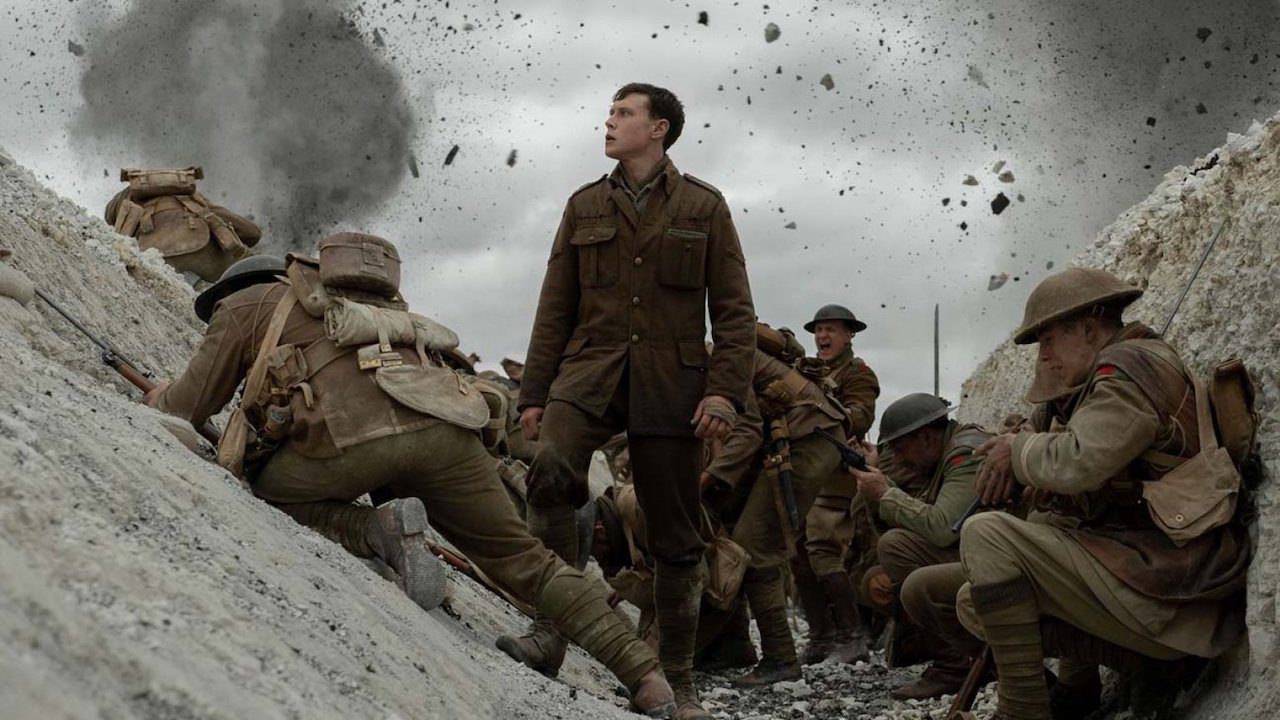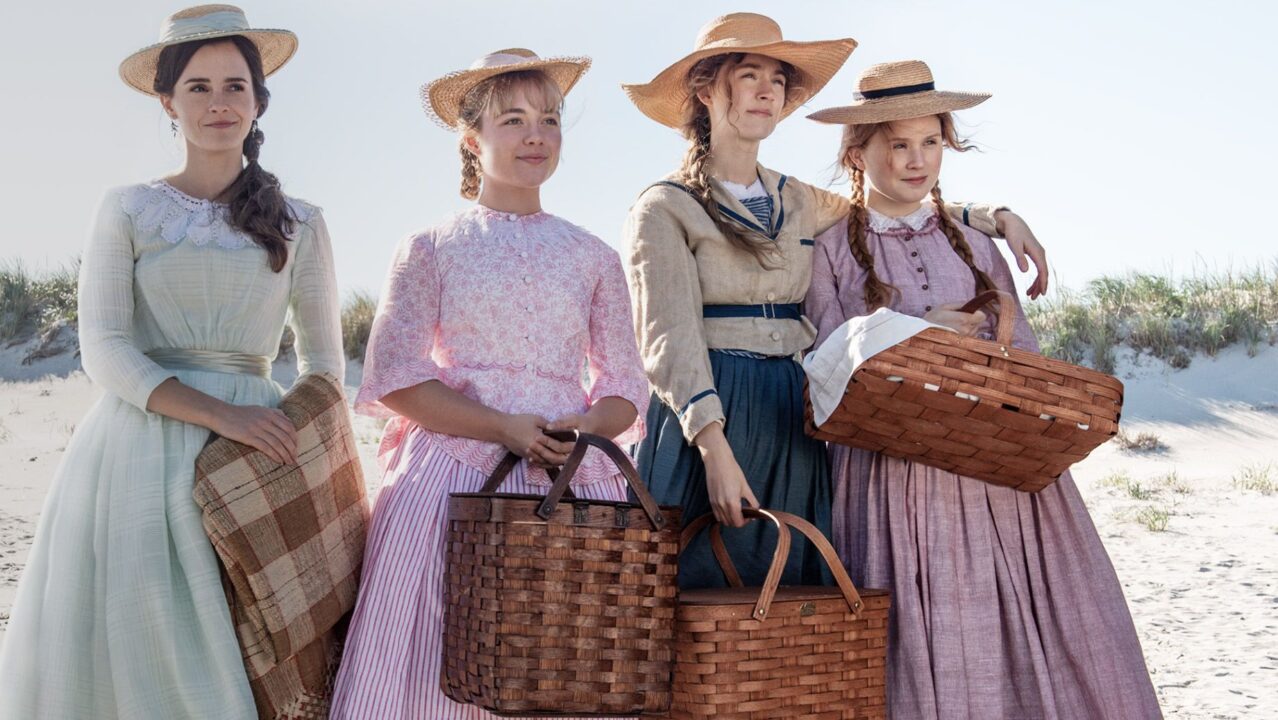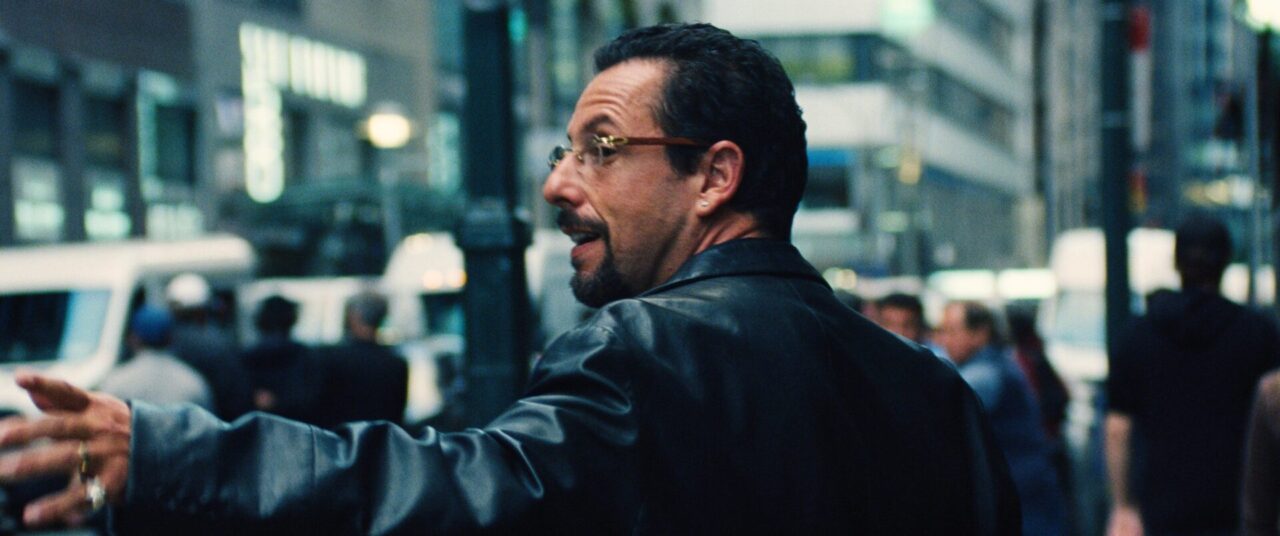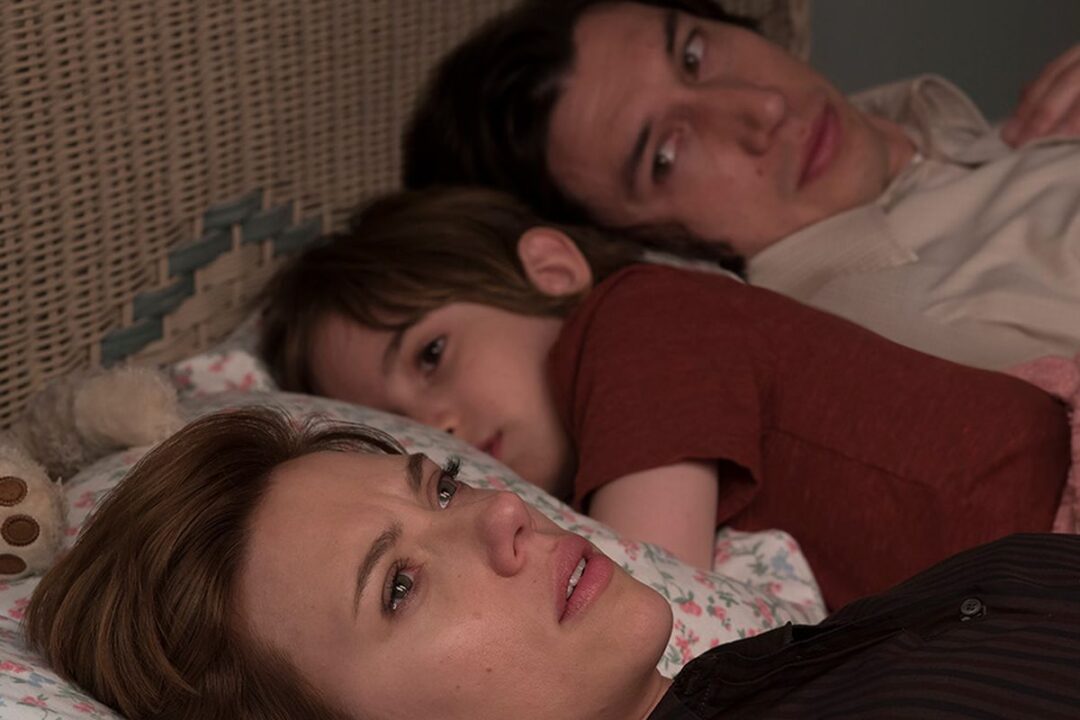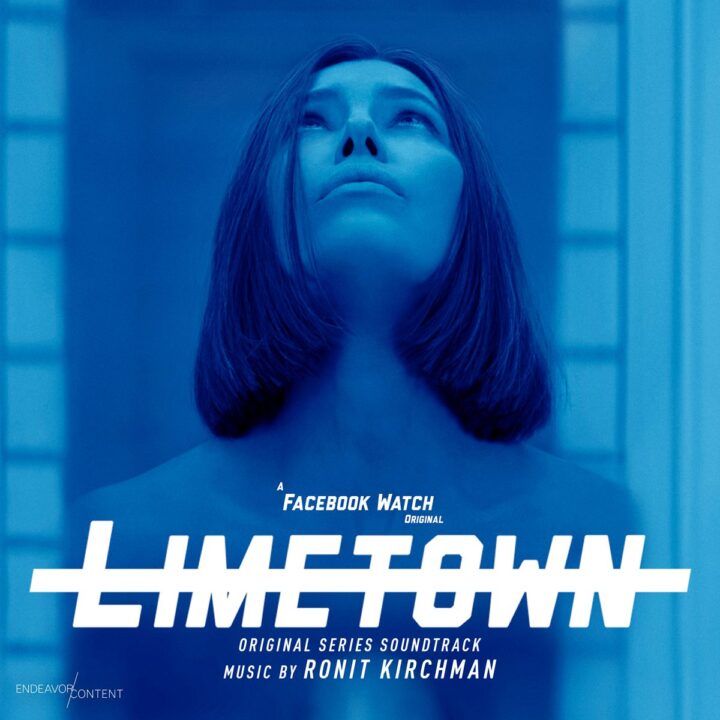A Beginner's Guide To: Kelvin Harrison Jr.
Having completed a handful of small roles in short films and TV, the 25-year-old actor got his big break in 2017 when he starred as Travis in Trey Edward Shults' independent film It Comes at Night. Two years later, their opportunity to re-team in Waves would cement Kelvin Harrison Jr.'s reputation as an artist to watch and earn him the Next Generation honor at the 2020 Hollywood Critics Association Awards. What is so exciting about Kelvin Harrison Jr. is that he takes chances with his roles. Every character he embodies is layered with conflict, emotional urgency, and redemption. In what is sure to be the beginning of a long and prosperous career, here are three films to check out so you can tell your friends, "I knew of him then."
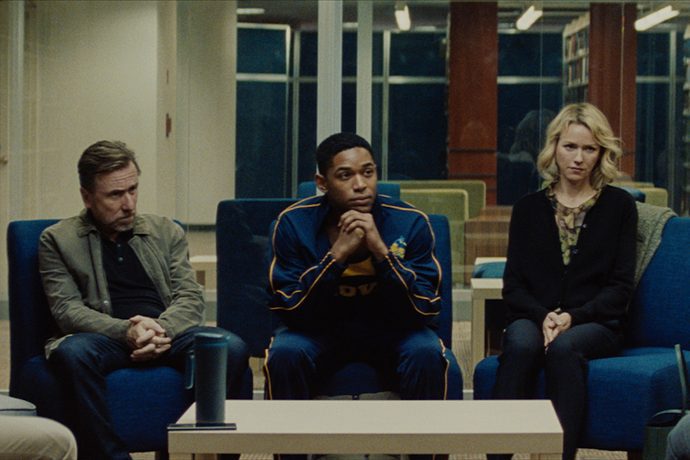
Luce
One of 2019's smartest psychological thrillers flew under the radar, but that doesn't mean it's effectiveness is any less superior than last year's heavy hitters (Us, Midsommar, etc). In Luce, directed by Julius Onah, Harrison Jr. play the titular role of Luce, an adopted high school student whose assimilation into "American life" comes easy as he is highly, almost scarily, emotionally intelligent. But being a young black man at a predominately white school, Luce experiences tokenism and heightened expectations from his family (Naomi Watts, Tim Roth) and his teacher Ms. Wilson (Octavia Spencer) that push him over the edge. Luce's mental mind games on everyone around him begin to create an unsettling presence, which he knows and uses to his advantage.
Luce was a fantastic breakout role that highlighted Harrison Jr.'s ability to play two emotions at once: sweet on the surface, sour internally – I suppose it can be considered his sour patch kids performance. His delivery of many monologues are both heartfelt and piercing, and executed just right. He clearly keeps up with Octavia Spencer – who gives one of her strongest performances to date – and leaves the audience with an unforgettable sense of disillusion from his stellar performance.
Luce is available to rent on Amazon.

Waves
His performance as a conflicted high schooler made Waves one of my favorite films of 2019. Directed by arthouse auteur Trey Edward Shults, Waves is a mesmerizing portrait of a hard-lived life and the discovery that every day is a new opportunity for compassion, acceptance, and peace. In an intensely moving performance, Kelvin Harrison Jr. plays Tyler, a high school athlete with a promising future, a steady relationship, and a supportive family. His father (Sterling K. Brown) takes the tough love approach to parenting, riding his son to always push harder, and faster. “We are not afforded the opportunity of being average,” he reminds Tyler, and that despite their suburban middle-class status, society will always identify them as only African-American. When a shoulder injury sidelines Tyler from his college prospects, his life begins to spiral out of control.
We see a different side of Harrison Jr. in Waves: one that's chaotic and immature, trying to get through life with the best of intentions. His mental and emotional breakdown is so affecting, we empathize when he reaches his rock bottom, even justifying his uncontrollable actions. Harrison Jr.'s ability to make us root for him, even when in the wrong, is a sign of his acting power.
Waves is available to buy on Amazon on 1/21/2020.
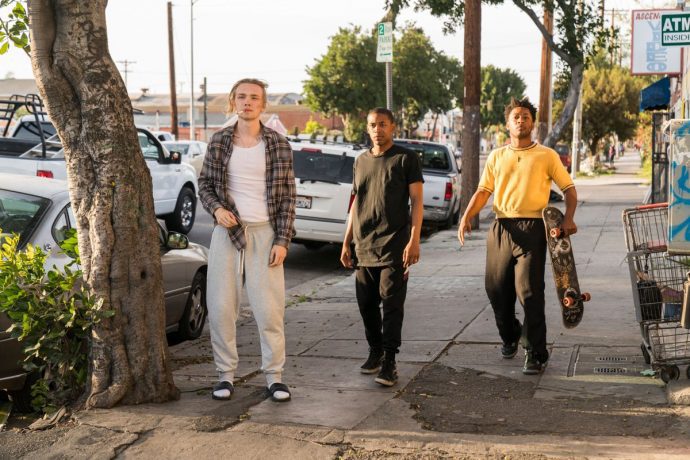
Gully
Gully, directed by music video veteran Nabil, is billed as a “slightly dystopian version of LA.” While there is truth in that observation, the dystopia isn’t a farfetched depiction of chaos – it’s all rooted in reality, which makes for an even more affecting watch. Best friends Jesse (Kelvin Harrison Jr.), Calvin (Jacob Latimore), and Nicky (Charlie Plummer) live within blocks of each other on the streets of South Central LA and all come from troubled backgrounds.
The effects of abuse, mental health issues, and an overall lack of supervision are contributing factors to the boys’ tough outer shells and their disregard for those around them. Out of boredom and abandonment, the boys cause fun-minded havoc around their impoverished community, despite the ominous warnings from the local homeless prophet (Terrence Howard). They may have been forced to grow up prematurely, but these are still young boys in need of a childhood, trying to figure out who they are and where they’re going amidst the chaos and unfair dealings that life has in store for them.
A release date is still TBD since its premiere at the 2019 Tribeca Film Festival, but hopefully, fans of Harrison Jr. won't have to wait long for this unique cinematic work to find a home. The Gully script gives this group of actors an outlet for more provocative expression, and while most of the choices they make are highly divisive, their commitment to character is unwavering. It's a bold choice for Harrison Jr., who further proves his range is insurmountable.
Read more: Gully Review: An Aesthetically Rich Debut From Director Nabil
Gully does not have a release date yet.
Adam Driver, Kristen Stewart To Be Honored at Hollywood Critics Association Awards
Hollywood Critics Association to Celebrate the End of the Decade in Cinema
With 2019 closing out another incredible decade in film, the members of the Hollywood Critics Association will be celebrating with a special montage as well as a series of decade-specific awards at the 3rd Annual Hollywood Critics Association Awards Ceremony on Thursday, January 9, 2020.
“The past 10 years have not only featured remarkable films and filmmaking, but they also served as a time for change within the industry. The fall of Harvey Weinstein launched Time's Up and the Me Too movement. Underrepresented voices within the industry were no longer afraid to speak up and demanded that changes be made. This decade also introduced a new way to watch films, with the launch of original films being made or released exclusively on streaming platforms such as Netflix, Amazon, Hulu, Disney+, and Apple TV+. This decade has been revolutionary for Hollywood and we are delighted that we can pay tribute to it,” notes HCA COO Ashley Menzel.
The decade-specific awards include:
Actor of the Decade
Actress of the Decade
Filmmaker of the Decade
Producer of the Decade
Next Generation of Hollywood

Marriage Story’s Adam Driver will be honored as the Actor of the Decade, while Seberg’s Kristen Stewart will receive the Actress of the Decade award. Incendies and Blade Runner 2049 director Denis Villeneuve will be honored as the Filmmaker of the Decade, while Daniela Taplin Lundberg, the founder of Stay Gold Features, will be receiving the Producer of the Decade award. Lundberg has served as a producer on over 15 films within this decade, including Harriet, Honey Boy, Beasts of No Nation and The Kids Are All Right.
The Next Generation of Hollywood award highlights actors and actresses aged 25 and under whose talented body of work within the last decade has shown that they are the next generation of stars in Hollywood. Recipients of this award include Kelvin Harrison Jr., Zoey Deutch, Brooklynn Prince, Thomasin McKenzie, Geraldine Viswanathan, Jack Dylan Grazer, Mckenna Grace, Millicent Simmonds, Noah Jupe, and Shahadi Wright Joseph.
About HCA:
Formerly known as the Los Angeles Online Film Critics Society (LAOFCS), the goal of the Hollywood Critics Association is to create a diverse community of passionate and professional critics with a passion for entertainment, including film and television.
HCA Board of Directors are as follows:
Scott Menzel, Founder
Ashley Menzel, COO
Nestor Bentancor, President
Jazz Tangcay, Vice President
'1917' is a Triumph, Unlike Anything You've Ever Seen
Much like the young soldiers in the film, director Sam Mendes set out on a seemingly impossible mission: create a feature-length WWI film in a single take.
That's 119 minutes of real-time conflict and non-stop adrenaline rush, in one take. Not only is 1917's mere existence already a success, but it's also one of the most technically proficient, emotionally compelling, and jaw-dropping goliaths of a war film that I've ever seen. Set in the desolate trenches behind British lines, 1917 will undeniably rank side by side with some of the best war films of all time.
Often, the individual faces of soldiers are lost amongst a sea of thousands of uniformed troops; 1917 puts a face to two brave young men who were willing to sacrifice all they had to save the lives of others. On April 6th, 1917, Privates Schofield (George MacKay) and Blake (Dean-Charles Chapman) are selected for a potentially deadly mission. They are to deliver a time-sensitive and life-saving message to their neighboring battalion troop of 1,600 men ordering them to cease their scheduled attack against the Germans. The attack, it turns out, would be an ambush, killing the British soldiers, including Private Blake's older brother. Schofield and Blake only have until dawn the next morning to relay the news, and so begins the race against the clock, the Germans, and the unpredictable roadblocks they'll encounter along the way.
Fired up with wide-eyed optimism and stone-cold determination, Schofield and Blake need to cross a pan's labyrinth of battlefield death traps to make it to their destination in time. Overcoming physical and mental roadblocks push the young men to the depths of their grit and not without casualties along the way. It's said that 'to live is to make peace with death,' a poignant reminder that comes full circle as the young men confront their own mortality throughout their heroic efforts.
Technically speaking, 1917 is no doubt a cinematic feat, and the same can be said on screen with much praise belonging to George MacKay. As the lead in what is likely one of the most challenging films of any actor's career, he carries 1917 with strength and a certain sweetness. His performance is astounding, both physically and emotionally. Dean-Charles Chapman equally commands the screen as a desperate young soldier who will do whatever it takes to help his brother. Andrew "Hot Priest" Scott, Benedict Cumberbatch, and Richard Madden also contribute their talents, rounding out a powerhouse ensemble cast.
What's equally as impressive as the film itself is the credits, which run almost 10 minutes. The thousands of names that scroll across the screen are a sharp reminder of the amount of work, time, money, and passion that goes into making a film, especially one of this size and caliber. Highlighted in the thousands of names are frequent Mendes-collaborators, including cinematographer Richard Deakins (Skyfall) and composer Thomas Newman (American Beauty). Their contributions to 1917 make the film what it is: unforgettable.
There have been a handful of war films this year, A Hidden Life, Jojo Rabbit, and Midway, all telling specific stories of life on the outskirts or battlefields of their respective wars. While powerful in their own way, nothing holds a candle to the brute force imagery that 1917 pulls off. Based on the audible "wows" from the audience and minutes-long applause as the credits rolled during my press screening, it looks like Mendes and company will be a frontrunner in the battle for Best Picture this awards season.
1917 (2019)
Starring George MacKay, Dean-Charles Chapman
Directed by Sam Mendes
Written by Sam Mendes, Krysty Wilson-Cairns
Distributed by Universal Pictures. 119 minutes.
Opening Friday, December 25th in theaters everywhere.
Bobby Krlic: "That pushed me in a direction I had not gone before in scoring"
When director Ari Aster set out to write the screenplay for Midsommar, he got into the zone by listening to Excavation, the dark and moody album from LA-based electronic producer Bobby Krlic, aka The Haxan Cloak.
Krlic's unique experimental sound perfectly matched the vibe of Aster's Scandinavian sunlit horror film, so much so that Aster eventually asked him to compose music for the film.
Using his expansive knowledge and genius, plus his interest in Scandinavian and medieval folk music, Krlic creates an entrancing, otherworldly wonder that blends light and dark moments seamlessly into ritualistic mysteries. In our exclusive conversation, Krlic talks about the process of creating the sound of Midsommar (sans computers), the difference between the LA and London music scene, and running his own record label.
What kind of music do you like to listen to, like what's in your Spotify Top 5 of 2019?
Oh, that's a hard one. I tend to listen to a lot of classical music, but I always kind of flip back into this zone of listening to Brian Wilson and The Beach Boys. I produce music for other people and am a songwriter for people too, so I can get caught up in an analytical zone of listening to things. So I might listen to Italian records from the 50s because of the crazy weird studio techniques they were doing. I'm in more of an archival zone a lot of the time.
When you were writing this score, had you seen the movie? Or were you writing blindly, just under the assumption of what you thought the movie was going?
Kind of both. [Director] Ari Aster and I met a long time ago, January 2017, before Ari made any features. He hadn't done Hereditary yet. I had the script to Midsommar back then, and that's when all the conversations started. We had the great opportunity to talk at length for a very long time about what the music could and should be. There were quite a lot of things I made in advance of the film. We would swap notes on it all the time; I would send out music every few days, and we both agreed it was in the tone of what we thought the film should be. And then ultimately, when the dailies started coming through and we put it against the picture, it actually wasn't working. So there was a whole kind of reapproach to the score after that.
Wow...
Not to say that it wasn't a worthwhile exercise, but yeah. Ultimately what I wrote before seeing the film didn't make it in.
Would you say any of the characters influenced the shift in tone?
Yeah, definitely, seeing the characters come to life. Everybody in the film is incredible, but Florence, in particular, just watching her performance was something else. A lot of the score is driven by her and her experience.

Courtesy of Create Digital Music
What are a couple of ways that you experiment or push boundaries with your own sound?
I'm classically trained in guitar; I started when I was younger, about six or seven years old. Everything else I've just kind of stumbled upon and taught myself how to play: violin, viola, cello, piano.
In terms of pushing boundaries of my own music, one thing that I was quite militant about with this score was all of the electronic manipulation and electronic sounds. Ari didn't want them to be made with the use of a computer. I've spent the last few years building my studio in a way where if I want to, I can go completely analog and record everything straight to tape. And I've got a lot of modular synthesizers from the 60s and 70s, that kind of thing. All the electronics in Midsommar were made with synthesizers and tape loops, not using anything inside a computer. That definitely pushed me in a direction that I had not really gone before in scoring.
Impressive! Is that something that you would look forward to doing again, that same style?
Yeah totally. Making something that's outside of the computer and it's tactile and you're touching it, I felt like I had a more attuned relationship to the picture with the sound.
Do you feel like there's a difference between being a film musician versus a solo musician working on your own projects like The Haxan Cloak?
Yeah, totally. If I'm scoring something, I'll never use my artist's [The Haxan Cloak] name; I always use my own name. If I'm making a solo record, I purely satisfy my own impulses. Working on a film, you're in service to somebody else's sensibilities, but that's not to say it's not satisfying. You're helping to tell a story, and it's for the greater good.
For example, I could write a score and make what I believe is the best piece of music I've ever written, I'll never write anything like that again, and I'm so happy with it. But ultimately, if it doesn't work against the picture, you have to be prepared to throw it in the bin. You would never do that if you were doing something purely for your own satisfaction. I think that's the main difference for me.
It seems like it would be humbling for sure, having outside influences saying what works and what doesn't.
Totally.
What's the difference between the London music scene versus the LA music scene?
That's an interesting one; I think there are pros and cons to both. The thing that attracted me to Los Angeles is that there's a great sense of community and collaboration that I didn't find in London. When I would visit here, I'd meet a lot of musicians and people who I admired whose records I own that I never thought I'd get to hang out with! It's always like, 'Oh, I've got this friend who has a studio, and you guys should get together and do something...'. [LA] seems like a very collaborative place, which I really, really love a lot.
London doesn't necessarily have that; I'm not really sure why that is. But on the flip side, I don't think you can beat London for their left-leaning experimental, electronic, and club music. I think that's second to none. I don't think there's a particularly vibrant electronic music scene in LA, not that's comparable at least. But if you want to go and see great musicians play live music, LA is really fantastic for that.
I read the other day on The Fader that you're launching a record label.
Yeah!
That's super exciting.
I acquired all the master rights for my back catalog, so instead of licensing them again, I just decided to do it myself. So I launched a label. So far, they've been re-released digitally, and next year there's going to be a physical re-release of everything so far. And there's going to be some new solo music from me coming early next year. I also score a lot of television; I just did this show for Hulu called Reprisal that I'm really proud of. For things like that, I think the label is going to be an exciting home for me to experiment with releasing vinyl in cool ways.
I'm pretty militant about the environment too, so I'm looking at ways of releasing sustainable and carbon-neutral records and compostable packaging. I see the label as a cool place for me to experiment with those things as well.
'Little Women' Review: A Modern and Empowering Remake
I am generally not a fan of remakes/reboots; I believe the reliance on doing what has already been done distracts from the discovery of new and inspiring voices in cinema.
Greta Gerwig, however, has changed my mind. Did society need another rendition of Little Women, the Louisa May Alcott novel that was first published in 1868 and has been remade over 14 times? Will this be the quintessential female empowerment film of the year released at a perfect time? Are we all the better for it? A resounding yes! To all of the above.
This interpretation of the life and times of the March sisters stays faithful to the novel while embracing Gerwig's charm and quick-witted charisma. A story of love, loss, and coming of age, these four sisters – Jo (Saoirse Ronan), Meg (Emma Watson), Amy (Florence Pugh), and Beth (Eliza Scanlen) – rely on each other to navigate life's unpredictability and hardships. All independent thinkers with unique personalities, the women are headstrong in their quest to find personal fulfillment, which means different things to each of them. Jo, the outspoken feminist of the group, is committed to her work as an aspiring writer. Despite her admiration for her wealthy neighbor, the charming and confident Theodore 'Laurie' Laurence (Timothée Chalamet), she turns down his marriage proposal in favor of a life she can call her own. Her views on love and marriage stand opposite to Meg and Amy's, who find love in very unexpected partners. The youngest and more reserved sister, Beth, finds happiness through music but, as we learned 150 years ago when the novel was released, even her passion and purity can't protect her from contracting an incurable illness.
Despite being set in a post-Civil War era, the script, which was adapted for the screen by Gerwig, feels fresh with sharp, sassy humor. The dynamic between Jo and Laurie feels like any modern-day teenage couple trying to figure out their relationship through the ups and downs of tears and laughter. In addition to modernizing the characters, Gerwig takes some creative liberty in her storytelling by jumping through the timeline, with the only distinction between past and present being the more saturated color palette of the past as opposed to the more bleak and gray reality of the present. It's a stylized decision that works wonders.
Aside from being a directorial knockout, the assembly of this all-star cast is an exciting who's who of legendary and iconic artists. Laura Dern provides an emotionally moving performance as Marmee, and Meryl Streep is unmatched in her cattiness as Aunt March. Saoirse Ronan is fierce as the protagonist, Jo, but perhaps the film's biggest surprise is Florence Pugh, whose hypnotic voice and measured understanding of comedic timing both enhances the ensemble cast while simultaneously stealing every scene.
The vibrancy that radiates from Little Women feels reminiscent of Gerwig's past both as a director in Lady Bird and as an actor in Frances Ha. What all of these films have in common are strong female leads whose confidence in themselves and their dreams surpass any societal expectations. No matter if it's 1868 or 2020, the timelessness of Little Women is undeniable; there will always be women who strive for personal fulfillment and love on their terms.
LITTLE WOMEN (2019)
Starring Saoirse Ronan, Emma Watson, Florence Pugh, Eliza Scanlen, Timothée Chalamet
Directed by Great Gerwig
Written by Greta Gerwig, Louisa May Alcott (based on the novel by)
Distributed by Sony Pictures. 135 minutes.
In theaters everywhere Christmas Day.
'Uncut Gems' is a Diamond District Crime Thriller That'll Blow You Away
To watch a "Safdie Brothers" film is to experience a very distinct type of film: often portraying self-sabotaging underdogs who scurry throughout New York City's underbelly, Josh and Benny's films are heart-pounding and electric.
Take 2014's Heaven Knows What, which follows a woman torn between her two loves: her boyfriend and heroin. There's also 2017's Good Time, which shows the aftermath of a botched bank robbery that turns into a race against the clock for survival (a film that further solidified Robert Pattinson's art-house cred). In their latest film – Uncut Gems – the Safdies once again create a breakneck-speed film that centers around a law-skirting citizen who can't help himself from getting in too deep.
Uncut Gems follows sleazy huckster Howard Ratner (Adam Sandler), a fast-talking jeweler whose gambling problems constantly overpower the responsibilities he has as a store manager to his employees and friends (LaKeith Stanfield), his wife (Idina Menzel) and kids, and to his illegitimate girlfriend (Julia Fox). Like any gambler, Howard believes that all of his troubles will be solved with the acquisition of a rare Ethiopian Opal (commonly referred to as “the gamblers gem"), which he intends to sell at auction for a king's fortune. However, his cockiness blocks his better judgment when he lets Celtics star Kevin Garnett (as himself) borrow the gem for a night, hoping that the Opal's good luck will help him win the bet he placed on the game. When the Opal isn't returned on time as promised, Howard is thrust into an intense marathon throughout New York City to track down the Opal, not only to save his future investment but also himself from nasty debt collectors who've decided that Howard's time is up.
What follows is dazzling, anxiety-inducing mania that spares no moment for viewers to catch their breath. Handheld and grainy camerawork (Darius Khondji serves as director of photography) lend further pulpy energy to this world that consists of overly-crowded nightclubs, sidewalk screaming matches, and dimly lit casinos. As for the score, Brooklyn-based artist Oneohtrix Point Never, who also scored Good Time, lends electronic and experimental compositions (arcade-style sounds are reminiscent of collecting gold coins in Super Mario video games) that help the audience escape reality and get lost in the world of the madness of the Safdies.
Returning to his more dramatic side, Adam Sandler delivers a stunning performance as a man on the edge of a mental breakdown. Those who found Punch Drunk Love and The Meyerowitz Stories a solid platform for the more "serious" Sandler to excel, Uncut Gems will be a welcomed return to the big screen. Proving himself to be one of the most dynamic actors of our time, under the direction of the Safdie's provocative direction, Sandler's natural talent is accelerated to new heights. Aside from transforming big-name actors into unrecognizable characters, the Safdies also have a gift when it comes to scouting amateur talent. Here, a majority of the cast are non-actors, including Kevin Garnett, The Weeknd, and Julia Fox (who credits Uncut Gems as her first film). This deliberate decision to cast non-professionals gives off a sense of liberation and unrestricted actions not common in feature films.
Like Howard Ratner – a maximalist through and through – Uncut Gems is very much a reflection of his go hard or go home lifestyle. Unsettling in all of the right ways, this film is no doubt a treasure to be sought out and celebrated.
UNCUT GEMS (2019)
Starring Adam Sandler, Julia Fox, Kevin Garnett
Directed by Benny Safdie, Josh Safdie
Written by Benny Safdie, Josh Safdie, Ronald Bronstein
Distributed by A24. 135 minutes.
Opening this Friday at ArcLight Hollywood.
'Marriage Story' Review: When a Relationship Meets Its Expiration Date
"Cries easily in movies..."
This earnest sentiment is something that Nicole (Scarlett Johansson) loves about Charlie (Adam Driver) in writer-director Noah Baumbach's latest film, Marriage Story. It also wholly and accurately captures my own experience watching this film.
A bittersweet story about reaching the expiration date of a relationship, Marriage Story opens the floodgates to romantic emotional catharsis through its exploration of one of the most complex emotions humans experience: love (and love lost).
When we first meet Charlie and Nicole, it is at the end of a short-lived "happily ever after." While on paper they seem like compatible life partners who adore each other, underneath the surface lies change, growth, and resentment that can't be suppressed any longer. Stuck at a crossroads in their personal and professional lives, they decide to separate. Charlie, a director at a local theatre company, will remain in the couple's Brooklyn apartment while Nicole temporarily moves back into her mother's house in Los Angeles with their young son, Henry (Azhy Robertson), as she stars in a new TV pilot. The assumed agreement is to finalize their split once work commitments lighten up. But as the couple grows, and then physically moves, further apart from each other, the seemingly uncomplicated untangling of the relationship starts to get messy.
Nicole's feelings of shrinking into invisibility and feeling like nothing more than a vessel for Charlie's artistic expression is at the root of her unhappiness. She admits to getting caught up in his spark but has come to discover over time that the facade was nothing more than narcissism and control disguised as the charisma of a tortured artist. Charlie, whose own selfishness has blinded him to the realities of his personal life, feels gaslighted by Nicole's sudden decision to involve lawyers (Laura Dern, Ray Liotta) and overcomplicate already complicated matters. But people are complicated, and Marriage Story is sensitive to the fact that people evolve over time, and not always together.
Marriage Story is a masterclass in acting, with Adam Driver and Scarlett Johansson delivering a pair of performances that rank amongst the best of the year. Driver, who has collaborated with writer/director Noah Baumbach three times prior, plays both sympathetic and arrogant in a way that we want to slap him and hug him simultaneously. From the subtle lip quivers to the heartfelt rendition of Company's "Being Alive" at the piano bar, he is the embodiment of a man who, with nothing left to lose, begins to wear his heart on his sleeve. Johansson as Nicole, a woman finally in charge of her own life after sitting in the passenger's seat for too long, has a boldness and bravery that serves as inspiration for those struggling to feel seen that this reviewer can attest to.
It can be hard to express the effects of romantic loss without feeling heavy-handed, and yet Baumbach so delicately alludes to Nicole's struggles in a way that perfectly describes the very natural progression of a relationship running its course. Relationships like Charlie and Nicole's are never black and white – never truly all bad, or all good – which is what makes the decision to leave such a monumental one and one that is sure to keep Marriage Story in the minds and hearts of all who experience it.
MARRIAGE STORY (2019)
Starring Scarlett Johansson, Adam Driver, Merritt Wever
Directed by Noah Baumbach
Written by Noah Baumbach
Distributed by Netflix. 136 minutes.
Available to stream this Friday, December 6, on Netflix.
Exotic, Alien Sounds Drive The 'Limetown' Soundtrack in This Exclusive Premiere
The Facebook Watch phenomenon Limetown, starring Jessica Biel as an investigative journalist, is a fictionalization of a true-life podcast that has had audiences hooked since it's premiere in mid-October 2019.
The 10-episode series follows Lia Haddock (Biel) as she unravels the mystery behind the disappearance of over 300 people at a neuroscience research facility in Limetown, Tennessee. Adapted from the podcast of the same name by Zack Akers and Skip Bronkie, who also serve as executive producers on the series, Limetown is a captivating drama for fans of mystery and innovative, genre-blurring adventurousness.
Cinemacy is excited to exclusively premiere the six-minute track "SLVA," composed by music producer, songwriter, singer, and multi-instrumentalist Ronit Kirchman (The Sinner, Now You See Me). In this sneak peek, we get a taste of Kirchman's exotic, even alien sounds from various electronics and 7-string violins.
Kirchman explains, “Even though Limetown plays as a thriller, it also creates a believable reality similar to ours with all of the complexity one might find – love, gentleness, curiosity, and hope, as well as dissociation, horror, dread, and menace. It comes to life through nuanced and powerful performances from Jessica Biel, Stanley Tucci... and many others. When I was asked to join the Limetown team, it was an easy ‘yes.’”
“Limetown is filled with resonant themes that I loved working with as a composer. What happens to empathy as we humans continue to push the boundaries of technology? What happens to cruelty? The technology amplifies all of our core human struggles. In certain places, the score quite literally represents the imagined sonic measurements of human and animal emotion. The ambitious scope of Limetown’s ideas allowed me to incorporate a wide musical palette, ranging from machine sounds and modulations to heartfelt melody, to the sounds of the orchestra unleashed in a new way. I hope that the score provides you with a sonic journey through all of the fascinating and often disturbing spaces of Limetown.”
The full 34-song album will be released by Lakeshore Records this Friday, December 6th.



